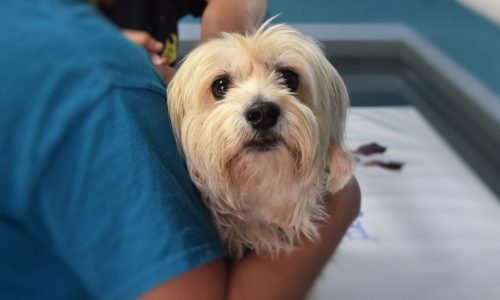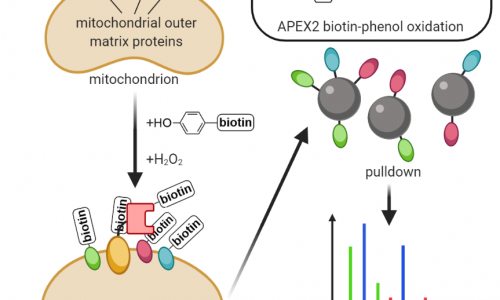
WGs updates
- News
- antimicrobials, companion animals, diagnostics, microbiology, pharmacokinetics, Research, survey, veterinary
- December 10, 2021
Working Group 1
Work in WG1 continues on both the diagnostic procedures and treatment guidelines surveys.
The Diagnostic procedures survey which aims to review and evaluate the methodology and interpretive criteria used by veterinary diagnostic laboratories across Europe for pathogen identification and antimicrobial susceptibility testing, is now completed. The survey was taken by 290 respondents (veterinary microbiology laboratories) from 35 countries. We thank all ENOVAT members who helped with the dissemination this survey in so many European countries and particularly to all participants for taking part in the survey.
The treatment guidelines survey aims to collect feedback from veterinary practitioners relating to available veterinary antimicrobial treatment guidelines in Europe and identify areas that can be improved in the future.
Building on the findings of WG1’s pilot survey, a revised and small-animal focused second survey has been prepared for launch. It is hoped that this survey will provide an insight into how antimicrobial use guidelines are viewed by companion animal vets across Europe. This information will enable any groups developing new guidelines to incorporate key features and generate more effective documents.
The new survey will utilise a different platform that accommodates multiple versions in different languages. To maximise survey completion, WG1 propose to publish the survey in all the languages used across the ENOVAT network. We are actively seeking help to translate the survey and would welcome any offers of linguistic assistance. The survey will be launched later this month and its success will depend on the number of responses. Any and all support in the dissemination phase would be greatly appreciated. We are eager to ensure that the views of as many vets as possible can be polled to ensure a broad base of representation.
The link to the Treatment guidelines survey will be circulated soon.
Working Group 2
European strain database was formed by systemizing of the data entries on 4009 isolates from 14 Excel documents sent by European laboratories to the WG 2 leaders.
Data planned for collection on each isolate were: country of isolation, year of sampling, strain laboratory ID number, genus / species / subspecies / type / serotype, animal (host) / animal subtype/ production type, origin of isolate (material / organ / tissue), diagnosis / symptoms / material details, reference identification method, MALDI system, Antimicrobial Susceptibility Testing (AST) data and method, other typing methods and responsible laboratory / contact person.
After assembly of European strain database in Microsoft Office 365 Excel, the quality and quantity of data were evaluated, typing mistakes and synonyms were corrected, and technical errors and missing data were identified (Annex, List of missing data; Misspelled data/Technical errors). Valid data were further analysed in Microsoft Office 356 Excel and statistical program IBM SPSS Statistics for Windows, Version 24.0. Armonk, NY: IBM Corp. Released 2016.
The database was temporarily stored on the Dragana Bozic institutional password-protected PC that has limited and high-secure access only for authorised IT engineers at the University of Belgrade – Faculty of Pharmacy IT department. An additional backup folder of all data files was temporarily uploaded onto Cloud storage for the platform Microsoft Office 365, provided by cluster of Microsoft servers. The Cloud storage have restricted access only to registered users, it has services Exchange Online, SharePoint Online, OneDrive for Business, Skype for Business Online, Microsoft Teams, Office for the web, Yammer Academic, Azure Information Protection, etc. that were used for the communication and file exchange between ENOVAT members. The temporarily stored versions were deleted after finished the report. The final version is stored at the password-protected PC of WG 2 leader that has limited and high-secure access only for authorised IT engineers at the University of Bern- Institute of Veterinary Bacteriology.
The complete report is available here.
Working Group 3
Report with a priority list of Clinical Breakpoints (CBPs), and strategy for obtaining required data by the end of October 2021
The strategy for defining the list of CBPs is based on prioritisation rules and on missing CBPs in the CLSI-VAST list. The breakpoints are going to be established where needs and available data overlap and considering the VetCAST work on PK/PD breakpoints. Based on the priority list the final three CBP will be defined by the end of the Action. The priority list of CBP is here reported:
- Doxycycline in pigs against Actinobacillus pleuropneumoniae and Pasteurella multocida
- Amoxicillin-clavulanic acid in dogs against Staphylococcus pseudintermedius, Staphylococcus aureus and Escherichia coli (for soft tissue and urinary tract infections)
- Oxytetracycline in cattle against Mannheimia heamolytica and Pasteurella multocida
- Penicillin procaine and penetamate in horse pathogens to be defined (e.g. Streptococcus equi equi or zooepi)
- Doxycycline in poultry against Avian Pathogenic E.coli (APEC).
Training school: Improve expertise in pharmacology
A basic training workshop on PK for non-kineticist has been organised in Padua in August 2021. It was a hybrid meeting with 23 physical attendees and 37 online attendees.
Another training school on PK/PD of antibiotics (2 days) will be organised in May 10-11 2022 in Thessaloniki.
Short-Term Scientific Missions (STSMs)
An STSM has been requested from Zorana Kovacevic to attend the Lab of Ludovic Pelligand by Royal Veterinary College to organise the data collected for the VETCast Committee, but postponed due to Covid 19 restrictions. It will be organised in the next grant period. Two additional STSMs are going to be organised to produce and finalise PK and produce PD data (time killing curve, etc..) to be used in PK/PD correlation for CBPs definition.
Working Group 4
In February 21, the ENOVAT guidelines group (WG4) held a 3 day on-line training school in systematic reviews and the GRADE approach. The training school was hosted by WG4 chair Lisbeth Rem Jessen at the University of Copenhagen and was led by the ENOVAT methodology taskforce chairs Luis Carmo, Marnie Brennan and Helena Ferreira. The lectures and exercises were brilliantly taught by our own methodology chairs and a team of human medicine infectious disease physicians and clinical epidemiologists from ESCMID, counting Luigia Scudeller, Benedikt Huttner, Leonard Leibovici and Mical Paul, who had generously agreed to share their extensive guidelines experience and knowledge from human medicine with us. The training school was attended by 27 ENOVAT members involved in one or more of current ENOVAT drafting groups.
ENOVAT currently has 6 Antimicrobial use guidelines projects ongoing within the following topics; canine acute diarrhea, surgical prophylaxis in companion animals, post weaning diarrhea in pigs, bovine mastitis, bovine respiratory disease and poultry colibacillosis. Most projects are in collaboration with the ESCMID Study Group for Veterinary Medicine (ESGVM) and ENOVAT has recently joined the ISCAID guidelines project on canine pyoderma.
For further information of the ENOVAT guidelines project please contact WG4 chair Lisbeth Rem Jessen





